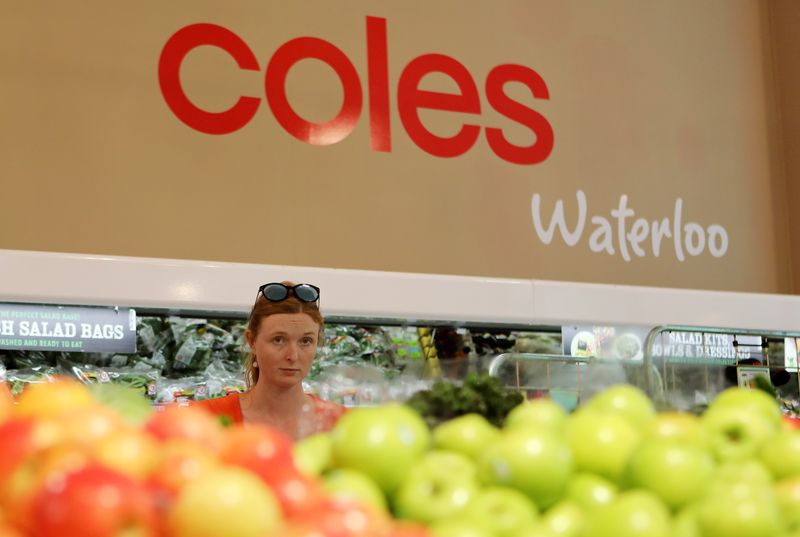By Sameer Manekar and Byron Kaye
(Reuters) - Australia's No. 2 grocer Coles Group (OTC:CLEGF) said on Thursday it hopes improved stock availability will curtail racing inflation as it met analysts' third-quarter sales forecasts, but warned soaring supply costs would dog the economy for another year.
The update shows inflation striking at the heart of the Australian economy just weeks from a May 21 election, where the cost of living is shaping as one of the main issues. Coles and larger rival Woolworths Group Ltd take two-thirds of Australian grocery sales.
A day earlier, official figures showed Australian inflation hit its fastest pace in two decades amid supply chain blockages and surging oil prices, fuelling speculation that the Reserve Bank of Australia would begin hiking rates from next month, not in 2024 as it had previously flagged.
For the three months to end-March, Coles said sales jumped 3.6% as supermarket shelf prices, flat in the prior quarter, leapt 3.3%, led in particular by the cost of red meat. It added that it expected inflation to continue until mid-2023.
"The inflationary pressures on suppliers are increasing and not decreasing," said Chief Executive Officer Steven Cain on an analyst call. But he noted inflation at Coles was slower than Australia's overall inflation rate, a sign the grocer was not automatically passing its rising costs to shoppers.
"I don't see this current wave (of inflation) as an opportunity to increase the gross margin percentage. What we'll see is people potentially buying more own-brand going forward," Cain said.
Shares of Coles were up 0.2% by mid-session but below a 1% gain on the broader Australian market, as investors questioned whether the company could absorb inflation without hurting profit.
The company's commentary "suggests inflation... during the quarter will accelerate through 4Q22 and FY23", Barrenjoey analysts said in a client note.
Ord Minett analysts said inflation "is likely to remain elevated in 4Q22 and FY23", peaking at 5% in the September 2022 quarter.
Against a backdrop of store closures and supply problems due to floods and widespread staff absenteeism due to the omicron COVID-19 outbreak, Coles said sales came in at A$9.08 billion ($6.47 billion). Supermarkets, its main unit, contributed A$8.03 billion, a near 4% jump from last year.

Woolworths is expected to report its third-quarter sales on May 3.
($1 = 1.4041 Australian dollars)